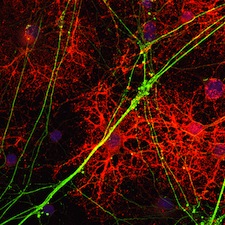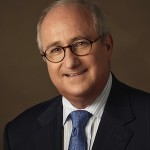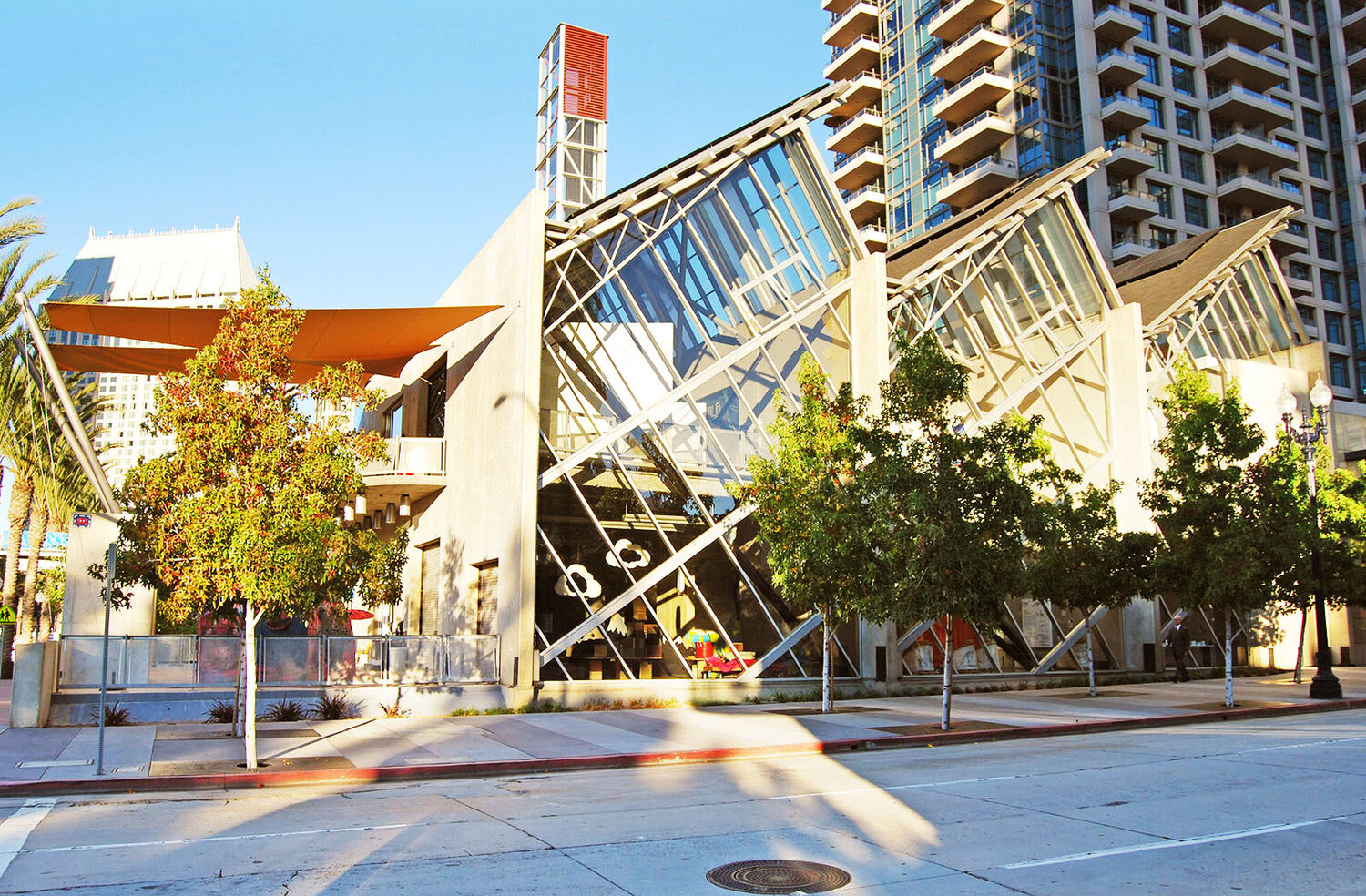Daily Business Report-Oct. 9, 2013
Preliminary logo for SDSC ‘Comet’ Supercomputer
San Diego Computer Center Awarded
$12 Million To Deploy ‘Comet’ Supercomputer
The San Diego Supercomputer Center at UC San Diego has been awarded a $12 million grant from the National Science Foundation to deploy Comet, a new petascale supercomputer designed to transform advanced scientific computing by expanding access and capacity among traditional as well as non-traditional research domains. Comet will be capable of an overall peak performance of nearly two petaflops, or two quadrillion operations per second.
“Supercomputers such as Comet and our data-intensive Gordon system are helping to fulfill the NSF’s goal to extend the impact of advanced computational resources to a larger and more diversified user base,” said UC San Diego Chancellor Pradeep K. Khosla.
“Comet is all about computing for the 99 percent,” said SDSC Director Michael Norman, the project’s principal investigator. “As the world’s first virtualized HPC cluster, it is designed to deliver a significantly increased level of computing capacity and customizability to support data-enabled science and engineering at the campus, regional, and national levels, and in turn support the entire science and engineering enterprise, including education as well as research.”
Comet will be the successor to SDSC’s Trestles computer cluster, to be retired in 2014 after four years of service
San Diego Housing Market Slowed in September
The recently booming San Diego housing market cooled off last month, according to statistics released Tuesday by the San Diego Association of Realtors, City News Service reports.
The median price of a single-family house sold in September in the region was $486,500, less than 1 percent higher than the August cost, the statistics showed. Also, 20 percent fewer houses changed hands in September than the previous month.
For attached homes, the median price last month was $305,000, which is 1.6 percent less than the month before, according to the SDAR. Nearly 17 percent fewer condominiums and townhouses sold in September compared to the month prior.
The figures are much better when viewed over the long term, however.
Compared to September 2012, the median price of a house that was sold last month was up 20 percent, and it was 27 percent higher for a condo. While 7.7 percent fewer houses sold when compared to September 2012, 8.7 percent more condos were purchased.
For the year to date — January through September of this year — the median price of a house that changed hands was $452,000, or 20 percent higher than the first nine months of last year. The 19,000-plus detached homes that sold marked a 2.9 percent increase.
The median price of a condo sold in the first nine months of 2013 was $292,900, a nearly 32 percent jump over the same period of 2012. The 8,900-plus sales marked a 7.5 percent climb.

New Strategy to Treat Multiple Sclerosis Shows Promise
Scientists at The Scripps Research Institute have identified a set of compounds that may be used to treat multiple sclerosis in a new way. Unlike existing MS therapies that suppress the immune system, the compounds boost a population of progenitor cells that can in turn repair MS-damaged nerve fibers. One of the newly identified compounds, a Parkinson’s disease drug called benztropine, was highly effective in treating a standard model of MS in mice, both alone and in combination with existing MS therapies.
“We’re excited about these results, and are now considering how to design an initial clinical trial,” said Luke L. Lairson, an assistant professor of chemistry at TSRI and a senior author of the study, which is reported online in Nature on Oct. 9.
An autoimmune disease of the brain and spinal cord, MS currently affects more than half a million people in North America and Europe, and more than two million worldwide.
Silvergate Bank Completes $35 Million
Commercial Real Estate Loan
San Diego-based Silvergate Bank said it has completed the $35 million funding of a three-property commercial real estate portfolio, the largest loan transaction in its history. “This was a complex, high-profile loan involving a single borrower and three commercial real estate assets,” said Derek Eisele, vice chairman and chief lending officer with Silvergate Bank. Eisele said the bank refinanced existing debt on the properties and provide $7 million of cash out to the borrower, the affiliated companies of MetWest Ventures.
Details on the financed properties, all of which are in California, were not disclosed.
Supervisors Vote to Seek Phased-Out Aircraft for Firefighting
County Supervisors voted unanimously Tuesday to request that the U.S. Department of Defense transfer several airplanes being phased out of service in Afghanistan to the U.S. Forest Service for use in high-risk wildfire areas such as San Diego County. County Board of Supervisors Chairman Greg Cox and Supervisor Dianne Jacob jointly proposed the item, which directs Chief Administrative Officer Helen Robbins-Meyer to draft a letter urging that the DOD transfer excess C-27 aircraft to the Forest Service for use in San Diego County and elsewhere. “With this action today, we are certainly going to be adding a very powerful new resource to our region’s growing arsenal against wildfires,” Cox said.
San Diego Attorney Heads County Fair Board

Frederick Schenk, a partner with the law offices of Casey Gerry Schenk Francavilla Blatt and Penfield, has been elected president of the San Diego County Fair Board, officially called the 22nd District Agricultural Association, which owns and operates the Del Mar Fairgrounds. Schenk previously was vice president of the board, and will serve as president for two years. He was originally appointed to the board by former Gov. Gray Davis. Schenk has been with CaseyGerry since 1983.
Kurt Chilcott Awarded Lifetime Achievement Award

Kurt Chilcott, president and CEO of CDC Small Business Finance Corp., has been awarded the 2013 Lifetime Achievement Award for Excellence in Economic Development by the International Economic Development Council, for a lasting commitment to the field of economic development. The award is given to an active or former IEDC member who has advanced the profession of economic development as a teacher or has motivated others. Chilcott has led
economic and community development organizations for more than 30 years. He spent more than 15 years with the city of San Diego as director of economic development services and manager of community and economic development.
Top Mayoral Candidates Present Plans to Bolster Police Force
The top four candidates for mayor offered their visions for bolstering the size of the police force Tuesday as they competed for one of the biggest campaign endorsement prizes, that of the San Diego Police Officers Association. Former City Attorney Mike Aguirre, Councilmen David Alvarez and Kevin Faulconer, and ex-Assemblyman Nathan Fletcher are among 10 seeking to finish the term of Bob Filner, who resigned Aug. 30 after less than nine months on the job. The hopefuls are also vying for the Probation Officers Association’s endorsement for the Nov. 19 special election. Fletcher captured the support of both organizations last year during his unsuccessful bid for mayor.
Tuesday’s debate came amid a backdrop of a chronic staffing shortage at the San Diego Police Department. According to the most recent report, the SDPD has 135 fewer sworn officers than called for in the budget. Officers have been leaving to the tune of around 10 a month for several years to nearby law enforcement agencies that offer higher take-home pay.
More Bill Actions by Gov. Brown
Gov. Jerry Brown has signed more than 30 bills as he works to clear his desk ahead of a midnight Sunday deadline, Capital Public Radio reports. They include about a dozen measures intended to help underserved communities obtain cleaner drinking water and legislation that will limit pro athletes’ benefits under the state’s workers’ compensation system. Another measure signed by Brown Tuesday will establish an electronic system for state and local public officials to disclose their income and economic interests.
The governor vetoed a bill that would have asked state agencies to study the creation of a modern online campaign finance database. In his veto message, Brown objected to some of the training and studies that would have been required by the bill. But he said there’s “no doubt” the current system needs an upgrade, and asked his administration to come up with a proposal.
Public Utilities Commission Will Oversee California Electricity Rates
Gov. Brown has signed legislation that could fundamentally change how people are charged for keeping the lights on. However, changes will not happen overnight, KPBS reports. That’s because California regulators will have a couple of years to work out just how many provisions of AB 327 are actually implemented. The law gives the California Public Utilities Commission something that has not been in place since the electriciy crisis at the beginning of the millenium: the ability to set rates and fees for electricity. The Legislature took that authority away when power prices soared in 2001. Over the next few years, regulators will decide a number of issues, including how much homeowners and businesses will pay for power, how many people can sell their solar power back to utilities and if a flat $10 per month fee will start showing up on power bills.
Utilities officials said a new fee structure is needed to reflect current realities, but solar power advocates saw something there to fear. Solar power advocate Bernadette Del Chiaro said a flat fee is punitive. “You may start having to pay $10 a month no matter how energy efficient you are,” Del Chairo said. “And regardless of whether or not you generate you own electricity with a solar power system. This is something that greatly concerns us because you know, it could kind of cut off at the knees a lot of people’s incentives for investing in efficiency and solar.”
While the law is sweeping in its scope, California regulators will have to work out the details. Observers say it could take several years to decide which items in the legislation are actually approved by the CPUC.




